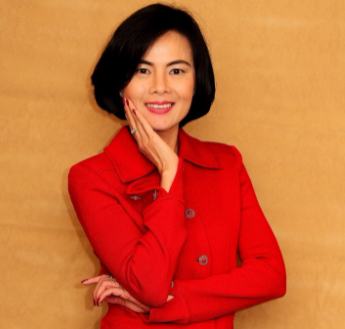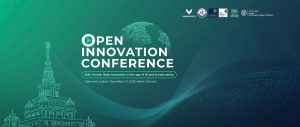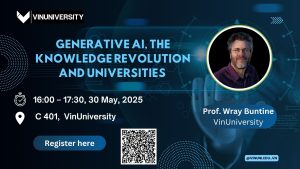Organic Solar Cells and the Future Energy Challenge
Speaker: Thuc-Quyen Nguyen, Professor, Department of Chemistry & Biochemistry; Director, Center for Polymers and Organic Solids; University of California, Santa Barbara (UCSB)
Friday, April 22, 2022, 8 am- 9 am | Zoom Meeting
Abstract: The development of alternative energy sources is now recognized by government, society and the global community as an urgent need. Solution-processed organic solar cells potentially offer low cost, large area, flexible, and light-weight alternative energy sources for indoor and outdoor applications. These devices are based on organic semiconductors, a class of carbon-based materials that can be synthesized to have band gaps from the UV to the near infrared regions of the electromagnetic spectrum. Organic semiconductors are attractive due to their unique properties: light weight, mechanical flexibility, low cost, low-temperature processing, and simple fabrication methods from solution such as roll-to-roll coating, spray coating or ink-jet printing into desired size and shape. Such materials are expected to form the basis of new technologies — called the Organic Electronics. OSCs have been implement in commercial products such as displays and lightings and have potential applications in transistors, solar cells, photodetectors, thermoelectrics, ratchets, sensors, neuromorphic computing, and bioelectronics. In this talk, I will discuss the future energy challenge, the development of organic solar cells, and their potential applications in building integration and greenhouses.
Bio: Thuc-Quyen Nguyen is the Director of the Center for Polymers and Organic Solids (CPOS) and professor in the Department of Chemistry & Biochemistry at the University of California, Santa Barbara (UCSB). Professor Nguyen received her B.S., M.S., and Ph.D. degrees in Physical Chemistry from the University of California, Los Angeles. From 2001-2004, she was a research associate in the Department of Chemistry and the Nanocenter at Columbia University working with Professors Louis Brus and Colin Nuckolls on molecular self-assembly, nanoscale characterization and devices. She also spent time at IBM Research Center at T. J. Watson (Yorktown Heights, NY) working with Richard Martel and Phaedon Avouris on molecular electronics. She joined the faculty of the Chemistry and Biochemistry Department at UCSB in July 2004. She is co-authored 278 publications and 3 book chapters that received over 32,000 citations and gave over 290 plenary/keynote/invited talks at national and international conferences, universities, and companies. Recognition for her research includes the 2005 Office of Naval Research Young Investigator Award, the 2006 National Science Foundation CAREER Award, the 2007 Harold Plous Award, the 2008 Camille Dreyfus Teacher Scholar Award, the 2009 Alfred Sloan Research Fellows, the 2010 National Science Foundation American Competitiveness and Innovation Fellows, the 2015 Alexander von Humboldt Senior Research Award, the 2016 Fellow of the Royal Society of Chemistry, the 2019 Hall of Fame – Advanced Materials, the 2019 Beaufort Visiting Scholar, St John’s College, Cambridge University, the 2015-2019 World’s Most Influential Scientific Minds; Top 1% Highly Cited Researchers in Materials Science by Thomson Reuters and Clarivate Analytics, the 2019 Fellow of the American Association for the Advancement of Science (AAAS), the Stanford University’s 2020 list of the World Top 2% Highly Cited Scientists, the 2020 UCSB Outstanding Graduate Student Mentor Award, and the 2021 Women in Materials Science by Advanced Materials. Her current research interests are doping in organic semiconductors, charge transport in organic semiconductors, bioelectronics, and device physics of organic solar cells, ratchets, transistors, and photodetectors.




